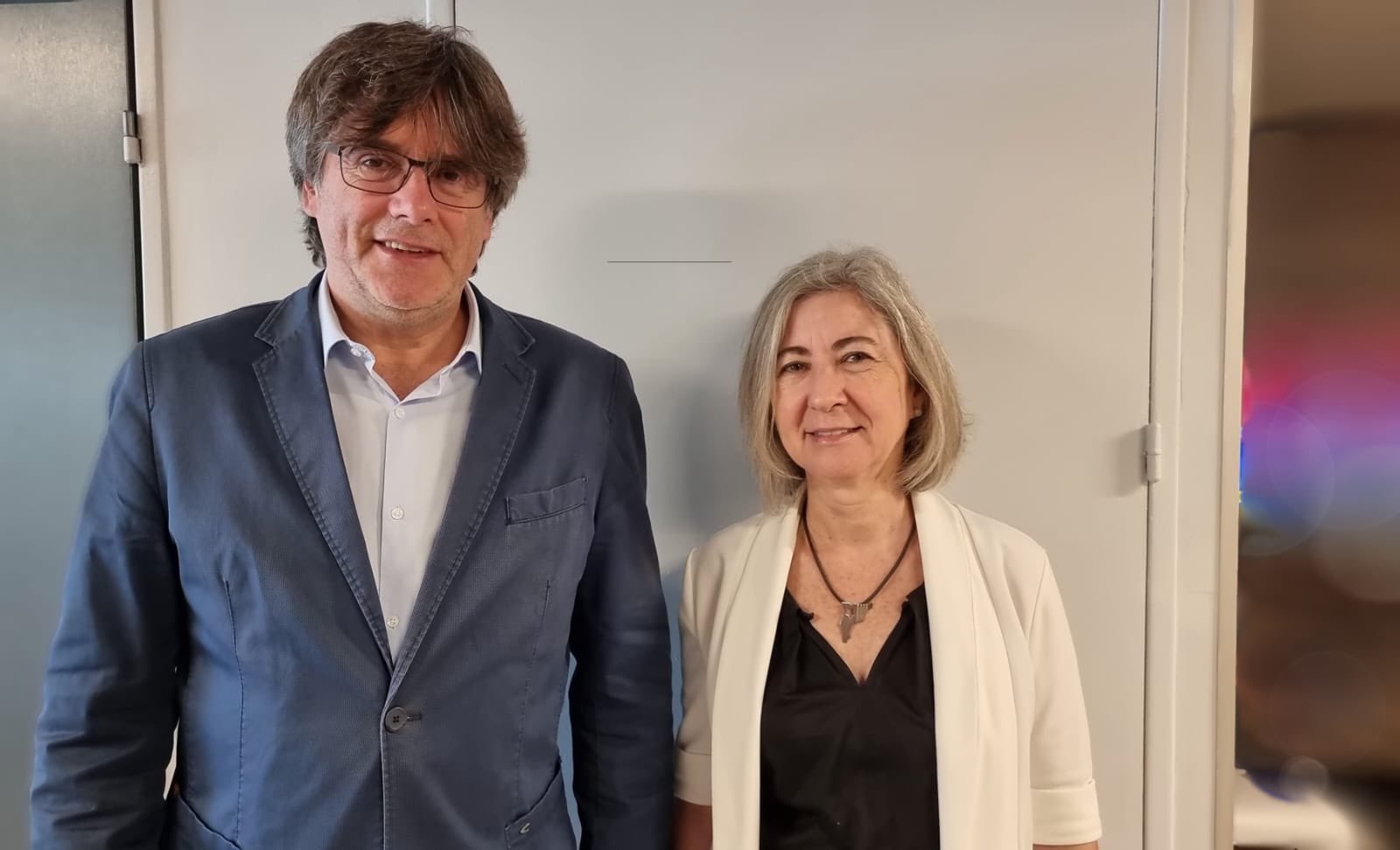In a climate of tension among the different pro-independence parties and the major civil society groups, the Catalan president-in-exile, Carles Puigdemont, met this Friday with the president of the Catalan National Assembly (ANC), Dolors Feliu. The meeting was held on the French side of the Pyrenees, in Northern Catalonia, where a meeting of the main organs of the Catalan exile body, the Council for the Republic, is to be held this weekend. The aim of today's meeting was, as Puigdemont himself explained via his Twitter account, "to share strategic points" as well as to prepare for another major pro-independence event to be held in two weeks on the streets of Barcelona: the fifth anniversary of the Catalan independence referendum of 1st October, 2017.
The Feliu-Puigdemont interview comes in the wake of last Sunday's Diada demonstration, and at the end of an intense week of meetings and statements arising from its impact: in particular, the meeting of the Catalan president, Pere Aragonès, with the civil society organizations on Tuesday made clear the deep strategic differences between the ANC and the Catalan Republican Left (ERC) party. Neither president Aragonès nor his ERC party took part in the Diada march, following the Assembly's criticism of the pro-independence parties and the government in the manifesto published for Sunday's rally. There, Dolors Feliu demanded "independence or elections" from the executive. On Tuesday, Aragonès called the ANC, Òmnium and the AMI to a meeting where, once again, the differences were on view. At that meeting, Feliu went further and proposed making Catalan's Unilateral Declaration of Independence effective in 2023.
On Wednesday, the other partner in the Catalan government, Together for Catalonia (Junts), held a meeting with the leadership of the ANC. At that meeting, although the party led by Laura Borràs and Jordi Turull showed itself receptive to the ANC's proposals, the politicians argued that they could not accept the calendar proposed by Feliu because they had made the commitment to the Republicans to give the dialogue table an opportunity.
The 1st October demonstration
In this context, the demonstration that the Council for the Republic has called for 1st October will provide another test of the independence movement's ability to come together again after the divisions that the Catalan National Day march showed. The Council for the Republic announced in July that the objective of the 1st October action is to "reaffirm the victory in the self-determination referendum" and that the result of that day "is valid".
In fact, the tweet the Assembly published to explain today's meeting, explaining that Puigdemont and Feliu had evaluated the different scenarios open, did not hide "the importance of a new success on October 1st".
All of this occurs, moreover, as the differences between the two government partners, ERC and Junts, are calling into question the continuity of their coalition in the Catalan executive. The senior leadership of both parties, led by Aragonès and Borràs, held a long meeting on Wednesday at the Palau de Pedralbes at which they did not hide the tension. Although, up till now, the government of the Generalitat had opted to isolate itself from the differences that it attributed to dynamics between the parties, Aragonès entered into the dispute yesterday, blaming the situation on the internal differences within Junts. "There are elements that are being debated in a political option of which I am not part," he said at a conference held by La Vanguardia. "I cannot resolve that," he affirmed. The president was alluding to the fact that Junts party leaders have publicly shown themselves in favour of continuing in the government, while others have spoken out against it.

